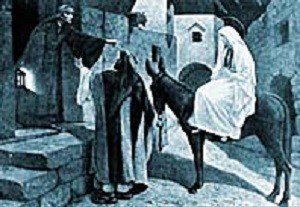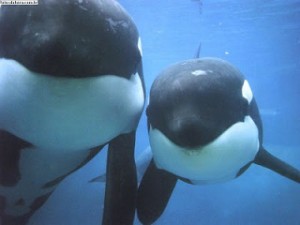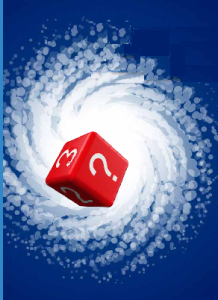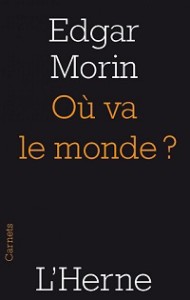
Arquivo para 2016
Fake news detector
The recent US elections, but also many others, have revealed a terrible way to c ampaign politically, “planting” false news on fragile points of a certain politician.
ampaign politically, “planting” false news on fragile points of a certain politician.
Unfortunately social media, not to confuse with the networks of people, but only media, there are a large number of false news, there are already specialized websites denouncing them not only by the evil that do the particular person, but mainly to badly unmask a bad intentional..
They have come to the point of worrying companies like Google, Facebook and Twitter that try to create measures that combat these intentional lies, that is, they are only meant to confuse.
Now technologist Daniel Sieradski has developed a plug-in known as a BS Detector that indicates “questionable” sites that are used on Facebook and Twitter.
In Brazil, the site boos.org reveals, for example, rumors such as “video inside the airplane of the Chapecoense”, “clandestine cocaine factory in Bangu”, “NASA confirms land will have 6 days of darkness in December 2016” , etc. etc.
But we can take 3 simple steps to prevent us from propagating this false news: 1) even if it favors our position to investigate whether what we are reading is true and NEVER disclose it on impulse; 2) bombastic news will usually be confirmed in the press and wait for public agencies to confirm them, CONSULT PUBLIC SITES, and, 3) even if the news is true never divulge it in a way to cause PANIC.
The device created by Sieradski, as reported by the BBC News, puts a red stripe that reads: “This site is considered a questionable source,” and denies Mark Zuckerberg Facebook that it “would be unable to substantively address the proliferation of false news On its platform, “the plug-in already has more than 25,000 installations since launch.
BS Detector Sieradski says it will evolve: “I and other open source developers spend many more hours improving their functionality,” he told the BBC.
The prophet John the Baptist and cultural change
John the Baptist went to the desert, where he lived and preached an ascetic life,  and talked about the radical change of life as a form of conversion, this implies a cultural change, a new route to life, this is a good proposal for Brazil today: Cultural change.
and talked about the radical change of life as a form of conversion, this implies a cultural change, a new route to life, this is a good proposal for Brazil today: Cultural change.
The first is to take place by force, we need a more austere life because the money has shortened except for some Maharajas, and then a cultural change of less facilities, ie easy loans and low interest, generalized spending and indefinite debts.
Of course the conversion that the prophet John the Baptist preached a “religious” life change, but it is not separated from a cultural change, that is, habits, customs and also values.
What the Sadducees and Pharisees of the time wanted, liberation from the heavy taxes of the Roman empire, and assurance of going to the kingdom of God by the observance of rules and “rites,” the Jews of this time espoused a certain ritual purity in matters such as Washing their hands, not doing work on Saturdays and other rites that are more social than religious.
The Pharisees were more popular and advocated an “oral Torah”, that is, that transmitted by the oral tradition, while the Sadducees were more aristocratic, members of the high society, defended a more sober interpretation of the Torah, without falling into ritualisms and rigor, but Both came closer to John the Baptist out of fear than out of real change of heart.
What happens today in relation to public openness, the fear of the law that promises to harden with the corrupt, causes many to change the discourse, but without changing the attitude, defend the punishment but of the “others”, as if it were possible to make a Casual law, for some only.
It is necessary to change, whether or not like “popular” Pharisees or “aristocratic” Sadducees, this could mean a cultural change in the country, increasingly necessary for a country in crisis.
Is there still Christmas spirit?
We have explained in previous years (see the our post) that Noel appeared in the 1920s in a Coca-Cola® marketing relating Santa Claus (American Santa Claus) with Christmas, and with impressions in magazines such as Saturday Evening Post, but it is clear that the birth of Jesus is much older, indeed dates in the years, since we are in 2016 AD, even though the measure of the years is imprecise due to the Gregorian calendar.
1920s in a Coca-Cola® marketing relating Santa Claus (American Santa Claus) with Christmas, and with impressions in magazines such as Saturday Evening Post, but it is clear that the birth of Jesus is much older, indeed dates in the years, since we are in 2016 AD, even though the measure of the years is imprecise due to the Gregorian calendar.
But this year, Trump’s election, crisis in the country with various nuances: impeachment, jet launder, crisis in Rio and with other states showing exhaustion of finances, now the tragedy with the team of the city of Chapecó (Brazil), there would still be climate for the true Christmas spirit, peace and justice, solidarity with the peripheries (now also existential), or are we in “depression”?
Remember that the year that Jesus is born is the year of the census made by the Roman Empire, and at that time people should go to the Christmas city, so Mary and Joseph go to Bethlehem, where they end up being born in a stable, due to lack of accommodation: the God-boy named Jesus was born.
Yes indeed there may be a historical confusion, Luke (Lk 2: 2) narrated that the census was taken when Quirinus was governor of Syria, where from the emperor Cesar Augustus, but the order of Cesar Augustus is 5 BC, while Quirinus (or Cyrene) became governor in 6 AD.
What is important is that the historical fact occurred, and Jesus entered into history “was a contact between men” not only by a whim of history, but by a divine coincidence, and there were others said the Prophecy of Isaiah: “The Lord will give you A sign, the virgin shall become pregnant … “(Isaiah, 7:14).
Then it is necessary to remember the humble birth of Jesus, the difficult years that will follow that will force his parents to flee to Egypt, avoiding the persecution of Herod who promoted the slaughter of all newborns want to kill the “future king” of the Jews, But this ruled until 4 BC, new confusion.
Yes it is necessary to remember that persecution, humility and crises always accompany this birth, but that it brings hope, confidence in the future and inner peace, yes the spirit of Christmas remains, even among those who do not believe, it is necessary to stop and breathe, otherwise it does not going forward.
The future and mating of whales
Chapter 1 is finished with reflections that make past-present and  present-future interactions worthy of ample questioning, just because “living in the present does not mean that we know it” and “we lose linear evolution, come to be Programmed, the robotized future … “(MORIN, 2010, 34), stresses the French thinker.
present-future interactions worthy of ample questioning, just because “living in the present does not mean that we know it” and “we lose linear evolution, come to be Programmed, the robotized future … “(MORIN, 2010, 34), stresses the French thinker.
We must turn our gaze to the past before we want to glimpse the future. Taking Morin’s conceptions in the book in question, we may consider that as long as we believe that we know the educational past as something already unveiled, we will still be “… At night and in the haze lost in the present as unable to see tomorrow.
The second and final chapter entitled “the mating of whales,” he wonders about the possibility of global society giving rise to a notion of “new” humanity. New on our account, during the book period, there was still a cold war between the United States and the Soviet Union, but now we are there with Fidel’s death in Cuba, Donald Trump, the French right-wing almost in power and Putin in Russia, is a back to the past?
Because the whales mating, because they are the symbol of the fight for the planet.
Morin points to awareness about the potential annihilation of the planet as water resources, reforestation and a realization of gravity that prevents the death of all.
Finally Morin reflects on the possibilities of resistance of global society and around a catastrophic future, the possibility of a “mega-dead” (MORIN, 2010, 56), which would become a vector for the construction of a planetary humanity, That would avert the ruin of man.
In addition to this, another point that the author highlights is a great positivity amid the misleading economic development of nascent neoliberalism: the perception that “the future is no longer the dazzling march forward, or rather it is the dazzling march towards In the face of the threats of annihilation which we must resist … “(p.62).
MORIN, E. Para onde vai o mundo? (Where is the world going? )Translation by Francisco Morás. Petrópolis, RJ: Editora Vozes, 2010.
Were the future is going II ?
Around his main ideas, the educator begins by dismissing the idea of a  linear prediction, the idea that “the future would forge in and by the development of the dominant trends of economics, technique and science “(Morin, 2012, P. 11), this was already dominant but found to be inefficient.
linear prediction, the idea that “the future would forge in and by the development of the dominant trends of economics, technique and science “(Morin, 2012, P. 11), this was already dominant but found to be inefficient.
The French expert of expert´s, Robert Gibrat, said: “In the last twenty years, the experts have regularly been mistaken.”
It thus categorically dismisses the conception of history as a simplistic conception; it is necessary to conceive of the future by a complex conception, for example, the French Revolution, which I need not only be rewritten in the nineteenth century, with comings and goings as Restoration, for example, but through new experiences such as socialism in the twentieth century, Bolshevism, Stalinism, libertarianism, and dis-stalinization, which corresponded to what he calls the “breach in the present,” where: knowledge of the present requires Knowledge of the past which, in turn, requires knowledge of the present. “(Morin, 2012, page 13)
For surely the “present state of the present carries with it potentially the situations of the future world” and so it is within the complexity to identify these potentialities, which are not only consequences of the “current creations / inventions that can be imagined” (idem).
Part of the future must be unveiled, it has not yet taken “form in the present humus,” that is, unveiling what is dying, in a much more complex and illuminating analysis than the simplistic liquid of Zygmunt Bauman.
For Morin, “the principles that allow us to imagine the evolution of history” (page 15), contrary to the “ineptitude of every prediction based on such a simplistic evolutionary conception … it is multidimensional; It involves geographic, economic, technical, political, ideological factors … first and foremost inter-retro-action play, that is, a perpetual link. “(Idem)
It asserts that everything that is evolutionary “obeys a multicausal principle. Causality is a multi-causality in which not only inter-retro-actions combine and fight each other, but also in which every autonomous process produces its own causality, always suffering external determinations, that is, it bears a self- Complex causality. “(Ibid.)
Morin’s analysis, which seems to me appropriate for the moment, which is derived from his Method I – The nature of nature, is of the “actions that deviate from its course, derive, reverse their sense, provoke reactions and counter-actions that submerge them . Hence the boomerang effects, where the blow does not strike the enemy, but the author, and the ‘perverse effects, whose rumors we are already noticing’ (Morin, 2012, page 16).
Morin seems to describe the reversed flows this year, when he says: “History innovates, drifts, disorganizes. It changes its track, it derails: the countercurrent caused by a current merges with the current, and the derailleur becomes the current “(pp. 16 and 17)
MORIN, E. . Où va le monde ?, Paris: L`Herne, 2007 (pages is brazilian edition).
Dialogues with the Z generation
As the conversation with Generation Z is difficult, because they have millions  of possibilities, facilities to access information and reject all kind of intolerance, inequality and closure, it is said in a very wrong way, that they do not dialogue, would it be true?
of possibilities, facilities to access information and reject all kind of intolerance, inequality and closure, it is said in a very wrong way, that they do not dialogue, would it be true?
First of all, we have talked about these stigmata of the lost generation, baby boom generation, etc. Is very misleading, but I use this to tell the generation that is now in adolescence, that is, they were born post-millenium, that was born until the year 2000.
It has a multiplicity of information, when watching TV transiting through various channels, but it is as if searching for something that interests you and do not find, browse the Web, live connected, and through this participate in the media social networks, low content on the computer or in the Cell phone, play electronic games like they were real sports to date with the help of keyboard and mouse.
The enormous power of choice that has contrasts with adults we closed a universe monkey or b-choices, they are binary, and not the Web generation, and for this need not only cables and icons, but most important of all Need thinking, adults do not want to think because it is easier to impose.
For those who like sociological analysis, it is not the fort of this generation because they know enough, that is, we are in crisis, we can however delineate looking at some experts, suggest that because they are going through a Great Recession, our first great crisis
After the economic crisis of the Great Depression – but no greater, the Z-generation becomes dominated by a feeling of dissatisfaction and insecurity about the reality and future of the economy and politics, this generation is faced with a difference in income each time The world, and strong family stress for collections.
Cyberpolitics attracts a minority share, it is adults who harden in social networks, because in fact this is a “blocked generation” as the Portuguese sociologist João Teixeira Lopes calls it, according to several sociologists also.
The more we talk, the more we block them, they feel penniless, those who do not dialogue are adults who are so full of convictions and ideas that have already been overcome, this has led, even with the best of intentions, to adopt extremist attitudes, These are critical and without prejudice.
A simple recipe: true hear, real dialogue, lose their “certainties” and discovered wonderful young people full of creativity, however much I hear these words in the mouths of adults, they sound to me most of the time, something “of the mouth out”.
Were is the world going?
This happens to me often, I go into a bookstore to see a book and another jumps  right into my mind, the phenomenon is less common on the internet, and they say it scatters.
right into my mind, the phenomenon is less common on the internet, and they say it scatters.
Wherever the world goes, Edgar Morin seemed to want to confide me something, about Trump unlikely, about ecology perhaps, the book is from 2007, although the Brazilian edition of 2012.
Sometimes I skip the preface, but this one by François L`Vonnet is very good, starts talking about the construction of a solitary work, although Morin so often spoke of the woman.
L ‘Yvonnet’s preface speaks of his “original work, one of the most consistent of our age, which makes complexity a fundamental problem and a new paradigm.” (Preface, page 7).
It speaks of the emptying of man, helped “to shatter it, to fragment it, depriving it of its multidimensional richness (its identity is both biological, psychological and social)” (ibid., page. 8).
For L’Yvonnet the human being must be enriched with all its contradictions. The thought must be’dialogical ‘, capable of letting the contraries flow, which complement each other and fight each other. “(Idem, page 8).
He repeats Heraclitus, “living from the dead and dying of life,” recalls the anthropological pseudo-syntheses of man “man is not only homo’s pacifiers” (while he knows and knows that he knows), “faber” (Calculator and moved exclusively by personal interest), concepts that are not only reductive (and narcissistically valuable), which put the human being in a corner, that is, isolate him from everything “(idem).
Man is “equally and indissolubly” (while inventing, imagining or killing) and “ludens” (while amusing, exalting, weaving).
Morin’s new humanism and examination of the future “resists any blissful reconciliation or optimism.” (Ibid.), But proposes a “planetary humanism, which brings about an awareness of the” Homeland “as the community of destiny that is the source of perdition” (idem)..
This is just a tasting, so we can talk to “Where is the world”.
MORIN, E. Où va le monde ?, Paris: L`Herne, 2007
Philosophy, Artificial Intelligence and God
We continue reading Peter Kreeft, now the interlocutor of Sócrates, Peter Pragma is urgently to solve his problem of profession and seeks Socrates.
Peter Pragma is urgently to solve his problem of profession and seeks Socrates.
Peter started his philosophy classes and the teacher asked the question: what is the difference between human intelligence and computer intelligence, this is what the idea of going into computing referred to, we are on page 55, to which Socrates asked:
SOCRATES: You want to become a computer program, you mean? For the only thing that goes into computers. It’s the only language computers understand.
The teacher has thrown this question that Socrates considers it easy to answer, but Peter does not want any evasion, and Socrates goes straight to the point:
SOCRATES: Artificial intelligence can not do what your natural intelligence has just done.
PETER: What?
SOCRATES: She keeps doing it.
PETER: Oh … oh. Asking questions, that’s it.
SOCRATES: Congratulations. You find the treasure.
Peter and Socrates are talking and realize that the very origin of sophisticated programs, such as artificial intelligence, should be spoken of in “people” and not just in machines.
But what is the beginning of all this? First we need an unscheduled programmer, or a programmer who can question your schedule, there is an initial piece of dominoes.
PETER: This sounds like a new argument for the existence of God.
SOCRATES: The same principle works in one case as in the other. It is the principle of causality, which says that you can not give what you do not have, that effects can not exist without proper causes, that there can be no less in the total cause than in the effect. …
PETER: I do not know about God. Let’s talk about something we know: ourselves.
SOCRATES: Something you know, maybe. As for me, I find myself a mystery, just as I find God a mystery.
Peter will remember Socrates’ phrase: “Know thyself,” and say,
PETER: Why is it so difficult to know yourself, Socrates?
SOCRATES: Because the self is the knower himself. How can the subject become his own object? How can I become this? That’s why I also think God is a mystery. The human self is an image of the divine Self.
And continue …
Technology and larvae
We are reading topic 3 of Chapter I: Technology and the Larvae, from Peter Kreeft’s  book: The Best Things in Life, and .the questioning is what is in fact the product of technologies.
book: The Best Things in Life, and .the questioning is what is in fact the product of technologies.
Socrates will question what is “serious science” that was how the biotechnologist Marigold refers to his valued work, Socrates says that Science comes from “scio” which means “I know”, as techn of “know how to do”, and says Which is a kind of magic, and it was in the medical age that magic and science were born, we are on page 48 in brazilian edition.
When they return to the question of age they penetrate the heart of the book, what would be the best answer to an even more important question, the question of summum bonum, the supreme good..
Remember that the previous dialogue had ended with the idea if a good winemaker could offer wine to an alcoholic, Peter Pragma returns the conversation because now he wants to know what he wanted to know what good life is, and now he begins to understand that he must know what it is the good.
MARIGOLD: … What is more important than the conquest of nature? And besides, there were not thousands of different answers, different religions and philosophies, myths, creeds, codes and cults?
SOCRATES: Yes, but they all had one common motive, which was the opposite of their technology.
MARIGOLD: One reason? And why is not something obvious then? Do not understand. SOCRATES: Perhaps because it is too obvious to be perceived by eyes full of maggots.
MARIGOLD: Enough! What is?
SOCRATES: They all agreed that the most important thing in life was to somehow conform the human soul to objective reality. His philosophy of “conquest of nature” believes that the most important thing is to conform objective reality to the desires of the human soul.
Marigold will say that this is progress, then go through the discussion of the existent gods, Socrates will argue if there is a common principle in beliefs, from there go to the discussion about what is the higher profession, which would seek the superhuman and come back the idea Whether it is possible to dominate nature or conform it to man. Finally they return to the question of practice, Marigold will say that philosophy does not kill hunger, to which Socrates argues that it is still not a supreme good, and which would be the higher good.
PETER: That’s the first question, is not it, Socrates? If there are no gods, then technology is superior, for there is nothing to conform to, and we must make nature conform to us. What else should be done?
Socrates, the good life and technology
Before ending the liberal education chapter, Socrates recalls his famous frase: “knowing oneself” and takes up the idea that “an unexamined life is not worth living”, as his interlocutor Peter Pragma leaves for Grab a coffee and brainstorm. In topic 3 of chapter I: Of the technology and the larvae, the friend who had gone to have a coffee came across the broken machine and said that he would become a technician.
“knowing oneself” and takes up the idea that “an unexamined life is not worth living”, as his interlocutor Peter Pragma leaves for Grab a coffee and brainstorm. In topic 3 of chapter I: Of the technology and the larvae, the friend who had gone to have a coffee came across the broken machine and said that he would become a technician.
Socrates recalls the short-lived and simplistic character of choosing a profession, and Peter claims that he can not stand any more interrogations, so Socrates thinks of a way to change the very methodology that is the question, “maybe there is a way” and Peter is encouraged.
But it would be illogical for Socrates to abandon his method, which he does is call a young girl named Marigold Measurer (something like measuring the Daisies, explains the footnote on page 42), the girl agrees but is intrigued by Socrates, psychologist.
But Socrates says, quite to the liking of a more contemporary philosophy, that he is a “sort of conscientiologist … I am a philosopher,” Marigold asks if it is his department, which he readily refutes, it would be contradictory to have a philosophy department, already That philosophy is not a department..
The conversation unfolds with Marigold maintaining a certain secret of his work, but reaffirming that the works today have a certain “hierarchy” and questions the place of the philosophy, and finally Marigold says that works with genetic engineering.
Socrates then questions the role of technology in subordinating nature and suggests that we are only “friends” of it, asks “why would you like to conquer your mother? We only conquer our enemies, “is on page 45.
Asked if he would not be afraid to “lose control” of his work, Marigold claims that his work is serious, to which Socrates asks if a wine producer is sober, “would it be right for him to give his product to an alcoholic?” Page 46.
The dialogue on technology is still going on, but we can keep Socrates’ question.
KREEFT, Peter. The best things in life. Illionois; IVPBooks, 1984, (edition Portuguese: Campinas: Ecclesiae, 2016).

